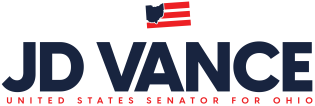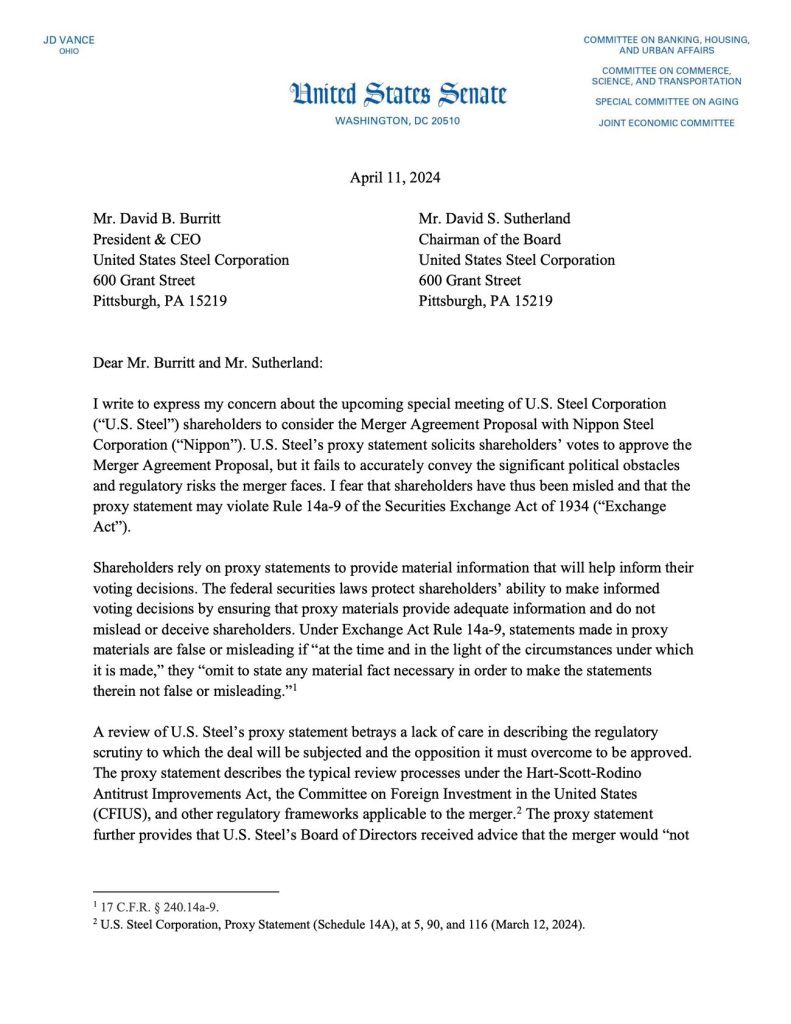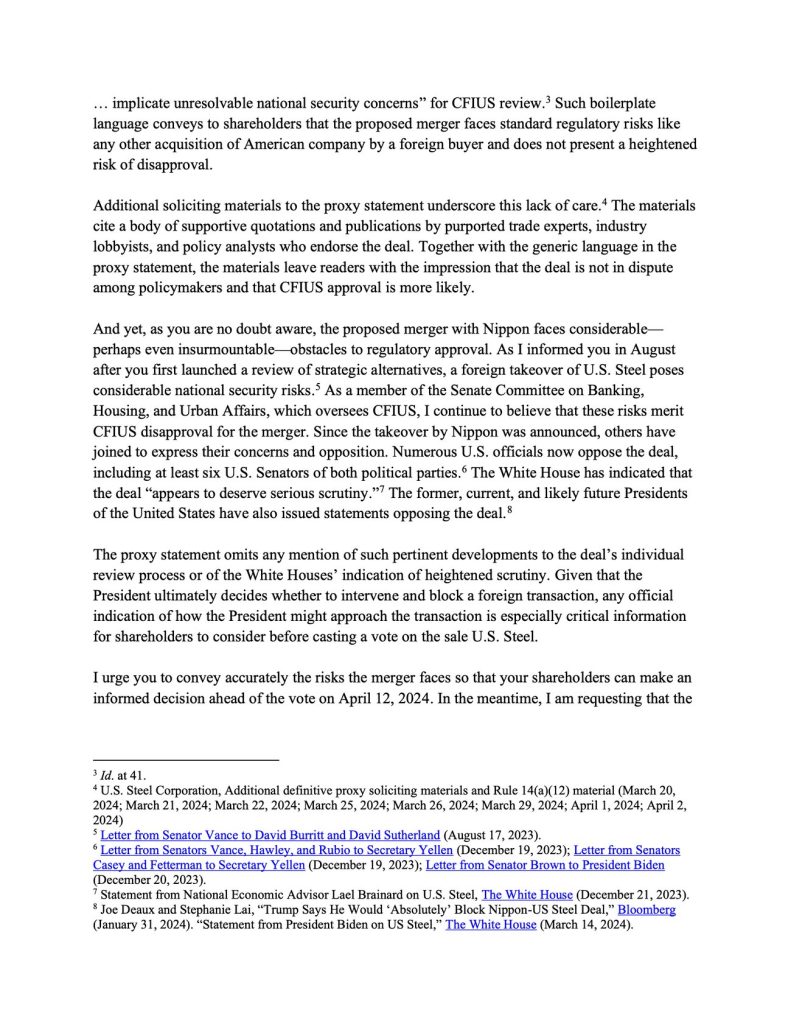“As you are no doubt aware, the proposed merger with Nippon faces considerable—perhaps even insurmountable—obstacles to regulatory approval.”
WASHINGTON, D.C. – Senator JD Vance (R-OH) sent a letter to U.S. Steel CEO David Burritt and Board Chairman David Sutherland alleging that the company’s Board of Directors has unlawfully misled shareholders ahead of tomorrow’s shareholder vote to approve the company’s proposed merger with Nippon Steel. Senator Vance has also notified the Securities and Exchange Commission (SEC) about his concerns, including a formal request that the SEC’s Chair and Commissioners direct the agency to review the legality of U.S. Steel’s proxy statement and determine whether the statement is in compliance with Rule 14a-9.
Senator Vance’s letter alleges that U.S. Steel’s proxy statement on the merger “fails to accurately convey the significant political obstacles and regulatory risks the merger faces” while urging shareholders to approve the foreign takeover, actions which may violate federal law. Senator Vance has previouslyraised concerns about economic and national security threats posed by the proposed deal and highlighted Nippon Steel’s business ties to the Chinese Communist Party, both considerable obstacles to approval by United States regulatory authorities.
In today’s letter, Senator Vance writes:
I write to express my concern about the upcoming special meeting of U.S. Steel Corporation (“U.S. Steel”) shareholders to consider the Merger Agreement Proposal with Nippon Steel Corporation (“Nippon”). U.S. Steel’s proxy statement solicits shareholders’ votes to approve the Merger Agreement Proposal, but it fails to accurately convey the significant political obstacles and regulatory risks the merger faces. I fear that shareholders have thus been misled and that the proxy statement may violate Rule 14a-9 of the Securities Exchange Act of 1934 (“Exchange Act”).
Shareholders rely on proxy statements to provide material information that will help inform their voting decisions. The federal securities laws protect shareholders’ ability to make informed voting decisions by ensuring that proxy materials provide adequate information and do not mislead or deceive shareholders. Under Exchange Act Rule 14a-9, statements made in proxy materials are false or misleading if “at the time and in the light of the circumstances under which it is made,” they “omit to state any material fact necessary in order to make the statements therein not false or misleading”…
And yet, as you are no doubt aware, the proposed merger with Nippon faces considerable—perhaps even insurmountable—obstacles to regulatory approval. As I informed you in August after you first launched a review of strategic alternatives, a foreign takeover of U.S. Steel poses considerable national security risks. As a member of the Senate Committee on Banking, Housing, and Urban Affairs, which oversees CFIUS, I continue to believe that these risks merit CFIUS disapproval for the merger. Since the takeover by Nippon was announced, others have joined to express their concerns and opposition. Numerous U.S. officials now oppose the deal, including at least six U.S. Senators of both political parties. The White House has indicated that the deal “appears to deserve serious scrutiny.” The former, current, and likely future Presidents of the United States have also issued statements opposing the deal.
The proxy statement omits any mention of such pertinent developments to the deal’s individual review process or of the White Houses’ indication of heightened scrutiny.
Read Senator Vance’s letter here and below:
###




